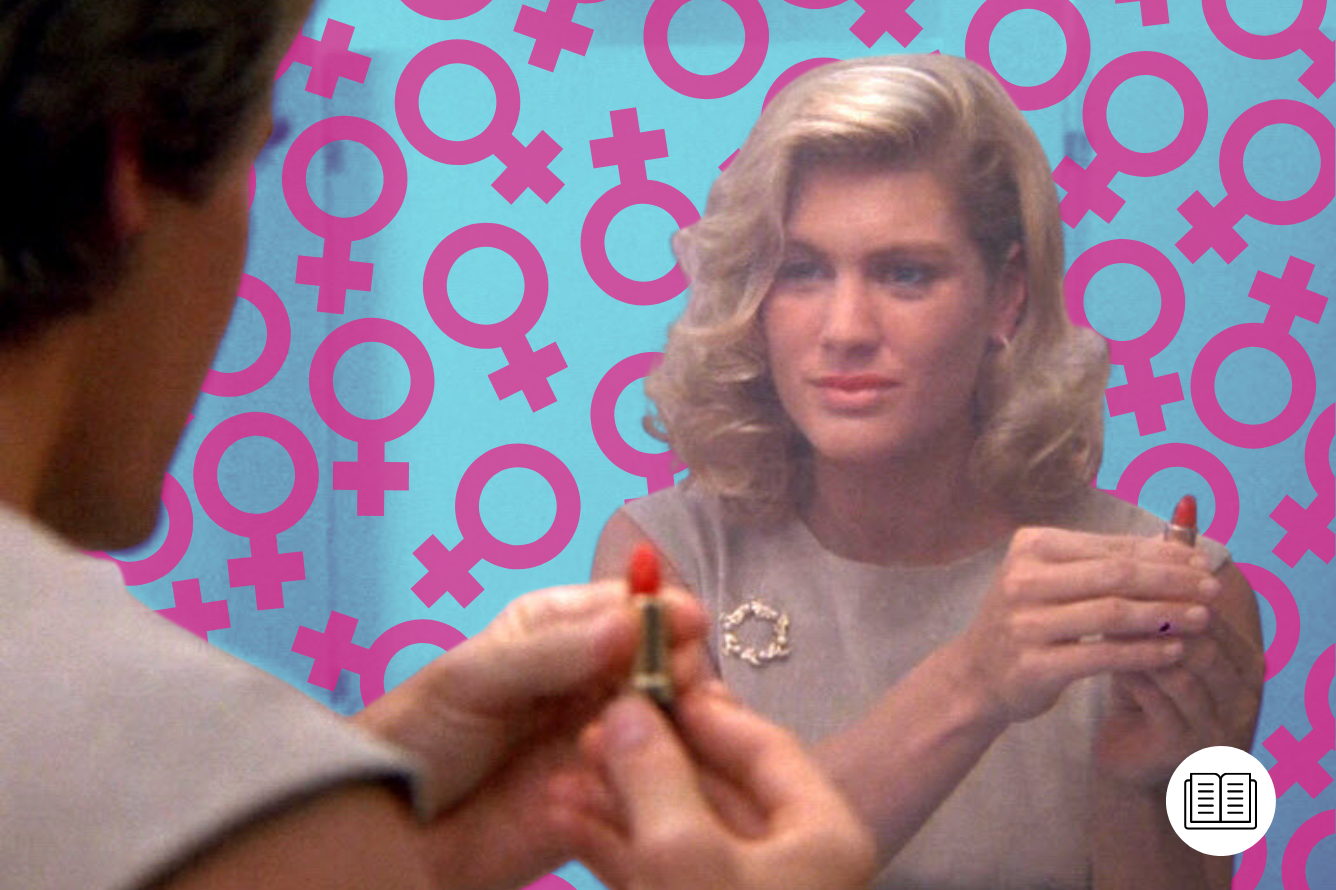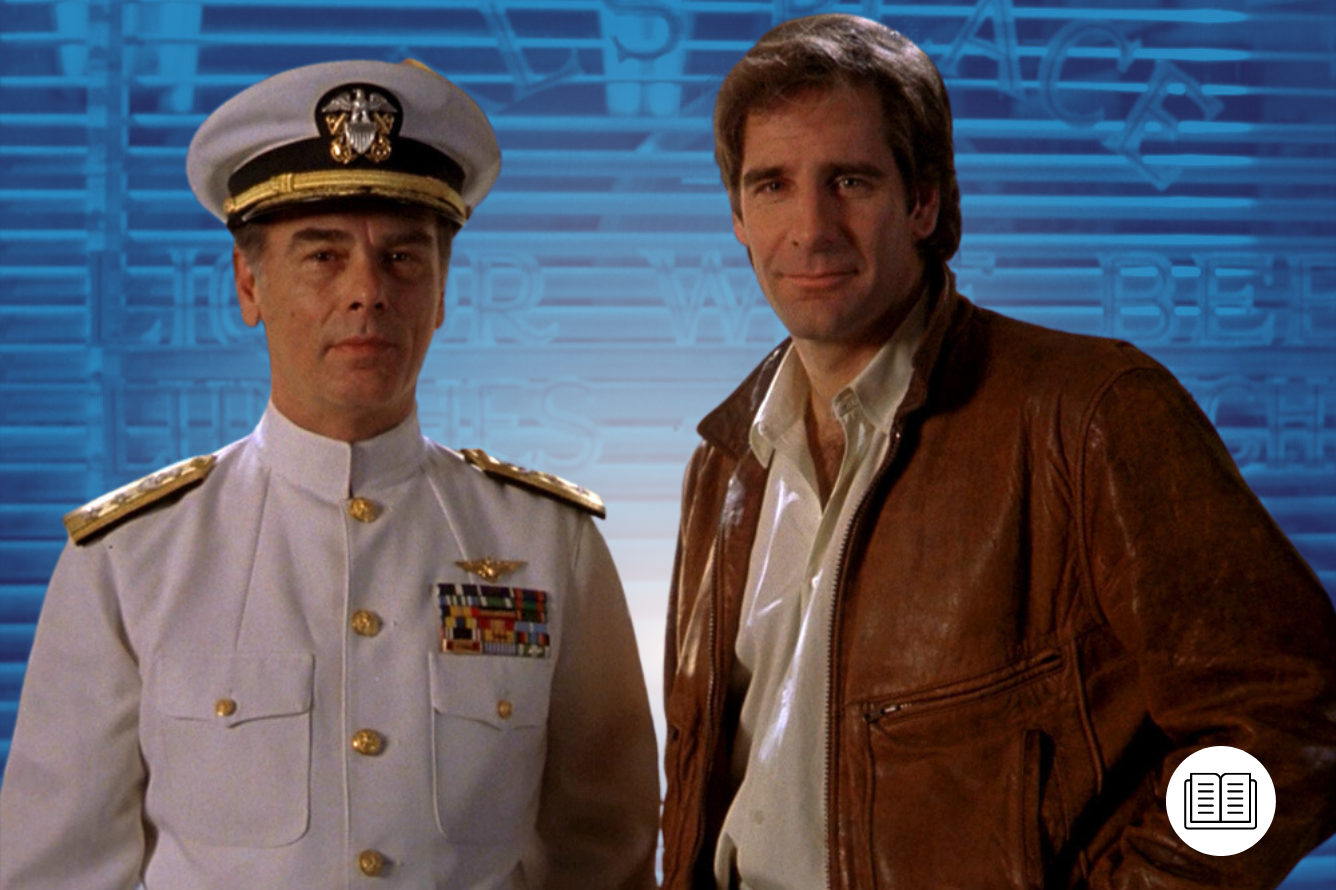“The first rule to quantum leaping is to find out who I am. Then who I'm here to help. Third, if I've made a mistake, know how to make up for it – and always, always know when to leap. Which brings me back to the first rule of quantum leaping. Finding out who I am.”
“Sam,” a female voice bellows. Dr. Sam Beckett, a liberal modern man of the ‘90s and physicist with six doctoral degrees, awakes in his new present moment. “My own name, I’m going to be called by my own name!”
There’s a sense of relief for Sam, who is lost inside a US government time-travel experiment, moving back and forth in time, ‘leaping’ into the bodies and lives of others to correct history’s wrongs and injustices, before he can leap again to try and get back home. Has he finally made it? He sinks into the enveloping soap suds of a bubble bath.
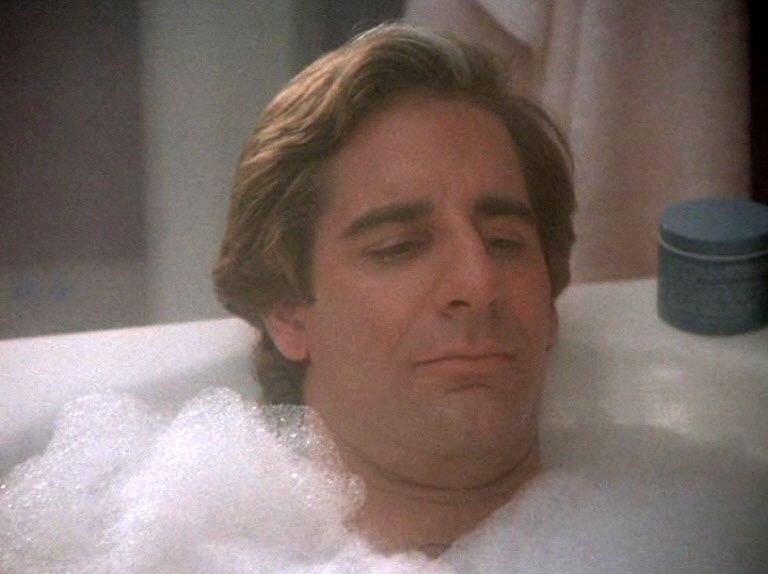
But then a woman he doesn’t recognize bursts in, asking him to zip up her dress. She’s innocent, overly familiar with him. This is Gloria (Jean Sagal). Second rule – she is who he is here to help. But the first rule… Who is he?
“Miss youngest executive secretary!” Gloria exclaims with delight. Sam emerges from the tub and wipes steam from the mirror. The reflection of a beautiful blonde bombshell stares back at him. Dr. Sam Beckett is now also a member of the sisterhood, but for the very first time in Quantum Leap, in the episode ‘What Price Gloria? - October 16, 1961’ (S2, Ep4).
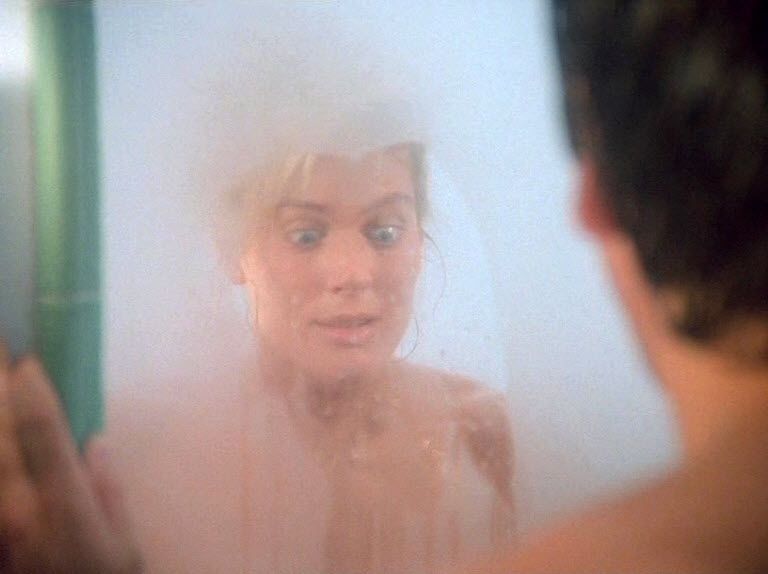
To make matters worse, it’s October 6th, 1961 – an era before Betty Friedan, Gloria Steinem, Ruth Bader Ginsburg, and second-wave feminism made a mark on history. Sam is trapped in the stunning body of Samantha Stormer and is about to learn what it feels like to be a girl in a man’s world, in a period where a woman’s derriere was treated as public property.
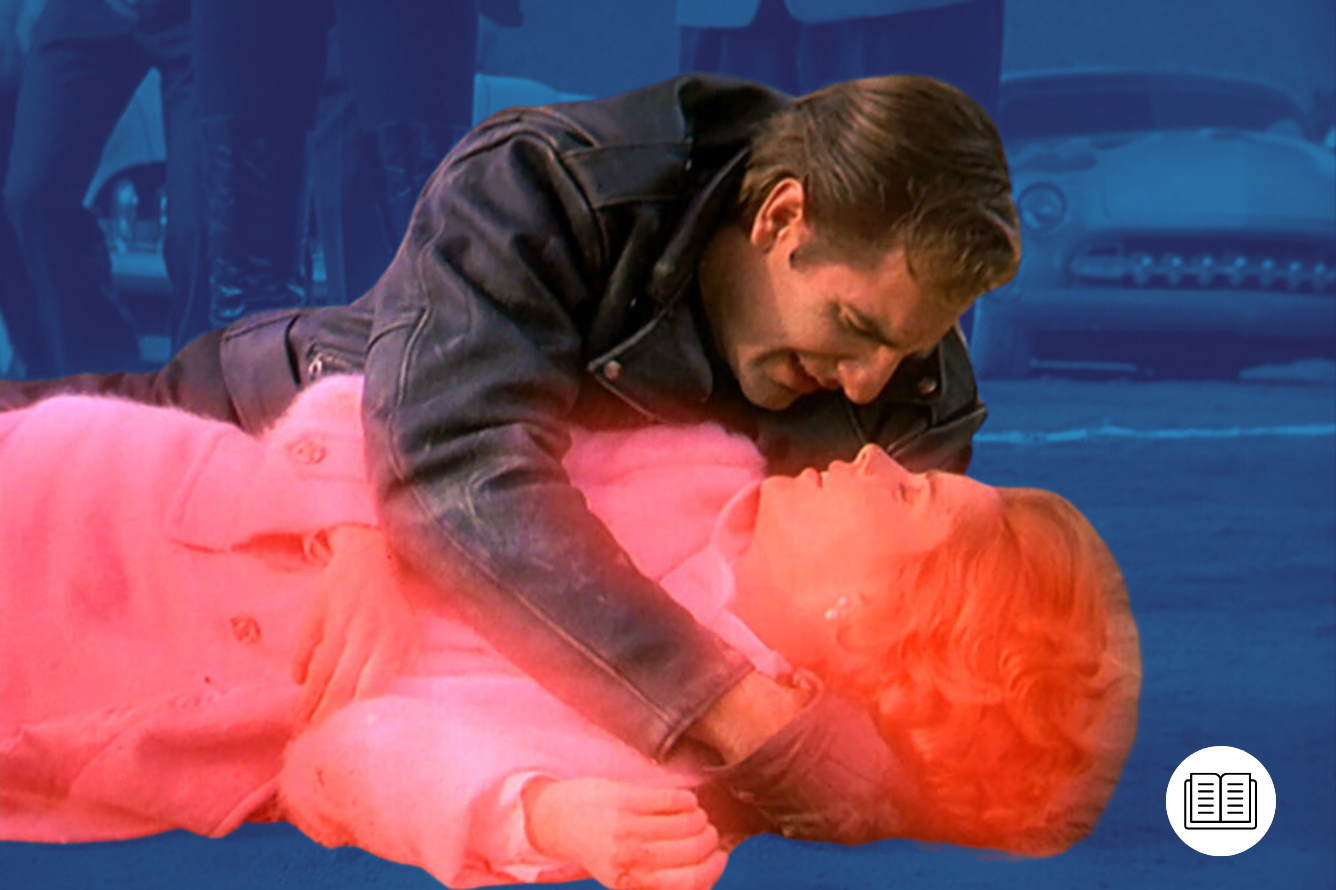
He will be objectified by men around him, including his best buddy, and sexually harassed by his new boss (John Calvin), who happens to be a love rat engaging in an affair with his roommate, Gloria (Jean Sagal), which is about to drive her to commit suicide. Can Sam, as Samantha, pull her back from the ledge? Oh boy… Oh GIRL.
The Origin of ‘What Price Gloria?’
Dr. Sam Becket: “This is sexual harassment.”
Buddy Wright: “I don’t know what that is, but I like the sound of it. You can explain it to me tonight over drinks.”
Cult US TV show Quantum Leap ran for five seasons from 1989 – 1993 on NBC and was exported internationally. Its time-traveling ‘new man,’ Dr. Sam Beckett, played by Scott Bakula, is a caring liberal in pursuit of equality for all, regardless of the year he is dropped into. A hero, and a hunk, he was a literal American everyman or every person.
From leaping into the place of a 70-year old black man enduring racism in 1950s Mississippi to a pimple-ridden ‘60s teen to JFK’s assassin Lee Harvey Oswald, a man with Down’s Syndrome, to Bobo – an astro-chimp, yes CHIMP, trying to escape experimentation, Sam walked in the shoes of those often disadvantaged or discriminated against, at least compared to his own cis white male privilege. Assuming their identity and outward appearance, Sam is joined on his travels by his colleague Admiral Al Calavicci (Dean Stockwell), a cigar-smoking loveable ladykiller who appears as a hologram guide that only Sam can see.
But when Sam first takes the place of a female in Quantum Leap Season 2, viewers were treated to more than just the comedy value of Bakula trying to walk in heels. Though credited as created by the TV powerhouse behind Magnum P.I., Airwolf, and NCIS, Donald P. Bellisario, this episode was written by Deborah M. Pratt, the show’s co-executive producer and head writer, who wrote or co-wrote 40 episodes. Deborah was kind enough to speak to me from her home in Los Angeles – more than a fangirl moment for me.
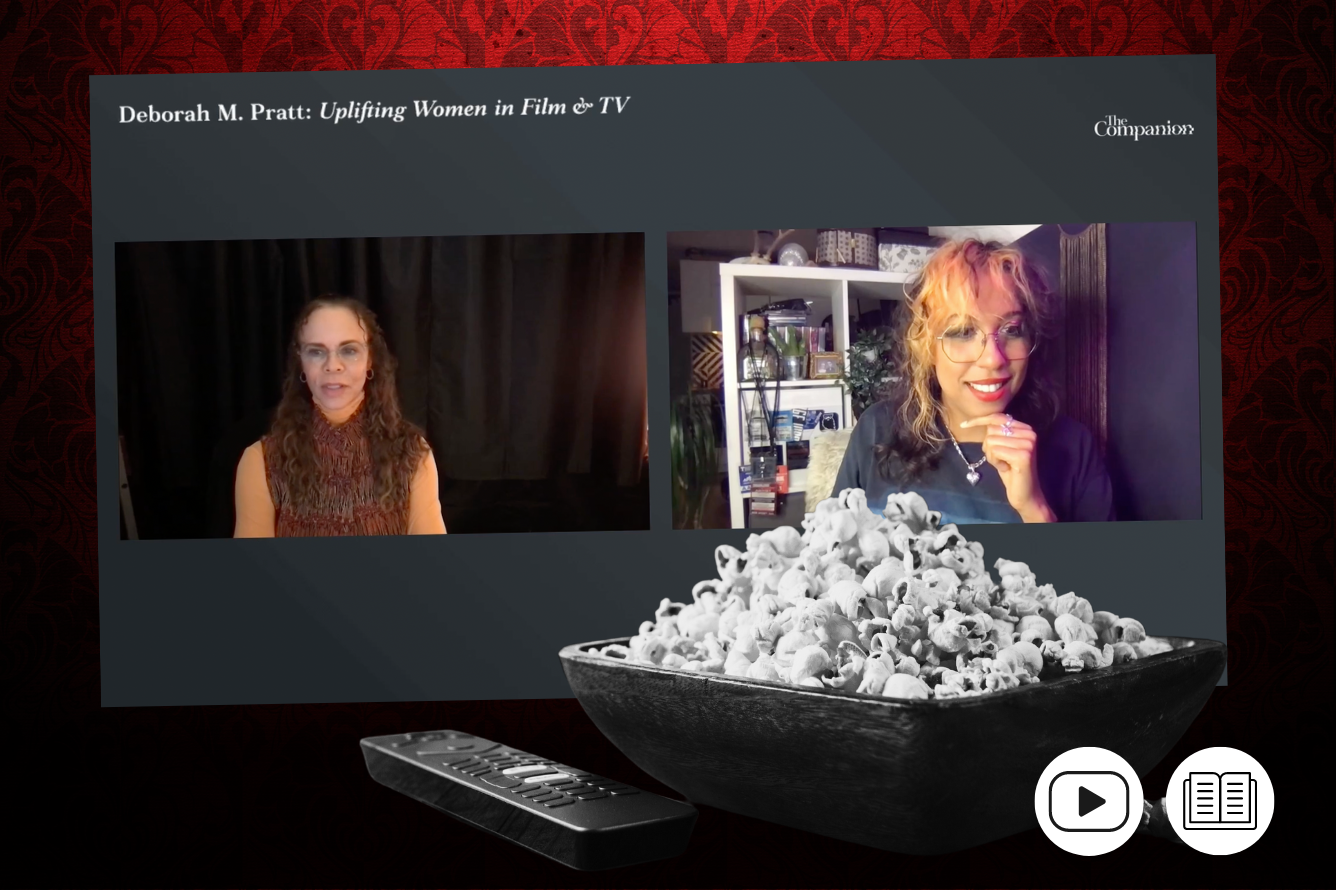
“Sam had to, as a man, deal with what it would like to be a woman for the first time. He hated high heel shoes. I don’t blame him. Scott said to me that the hardest thing was wearing a dress and feeling the air come up under the dress. He said, ‘I didn’t realize how important pants were until I wore a dress, and I dunno how you guys do it,’” Deborah laughs.
Or to quote Sam:
“I have come to the conclusion that women are part-masochist. It’s like someone designed a modern-day torture rack you can wear. From the bra, to the stockings to the tight skirts… and the shoes from hell.”
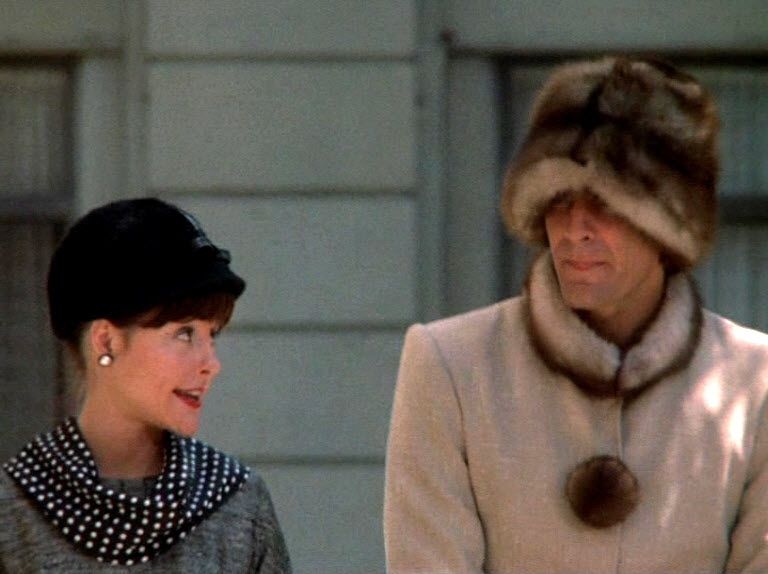
In What Price Gloria? - October 16, 1961, Sam is required to convincingly portray a woman and persuade those around Samantha that Sam is still her. As with other leaps, he has to maintain his cover in order to accomplish his mission and leap again. The performance by Bakula at times chimes more with the likes of Jack Lemmon and Tony Curtis in Some Like It Hot (1959), or Dustin Hoffman in Tootsie (1982), another tough ‘broad’ trying to make it in a sexist, chauvinistic world. It’s a challenge, and Sam is seriously incognito in a way he has never experienced before – arguably the most removed from his own experience in the Quantum Leap canon to date.
But why did it take so long for Sam to leap into the body of a woman? Deborah explains. “Season 1 was a half-season. Instead of having 23 episodes in one run, we had thirteen. So truthfully, it was just not enough time to put it in Season 1. I had written ‘Star-Crossed’ [S1, Ep3] as the second episode and then I wrote ‘The Color of Truth’ [S1, Ep7]. I was head writer, so I was guiding a lot of the other writers and teaching them the show. I did about four episodes a season because of that. I co-wrote with everyone, but I didn’t necessarily take credit.
“It had been a fight to get ‘The Color of Truth’ made because Sam played a black man [the aforementioned episode set in the 1950s] and everybody was terrified of that. Then when I came back and said, ‘Now I want him to play a woman,’ it was a fight! They didn’t want him to do anything that extreme that early in the show.
“We had talked about it and maybe year three we could start doing stuff like that – so season three. But thank heavens for Brandon Tartikoff [the show’s supportive executive] who said, ‘No, I think she’s absolutely right. Let’s explore.’ Scott Bakula was so giving and trusting and gung-ho as an actor – he did a brilliant job pushing it.”
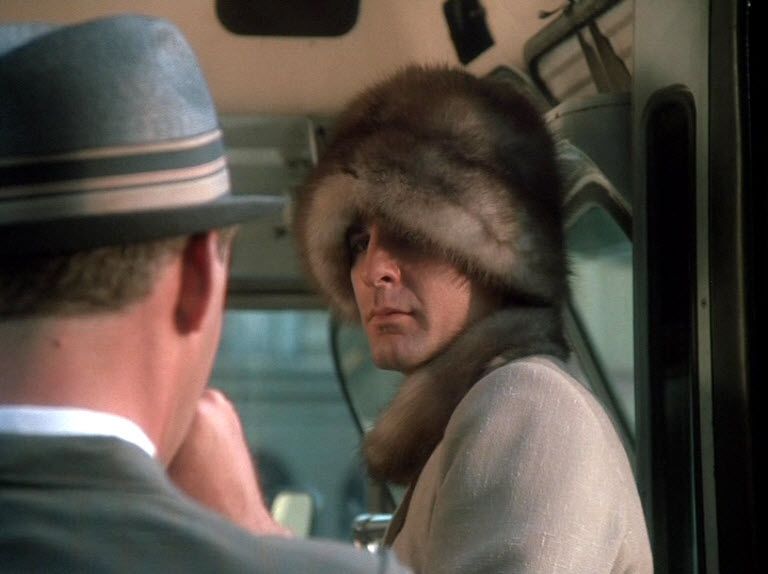
On Sam’s first excursion from his apartment, he is manhandled when boarding a bus. Just a few moments later, a co-worker practically lays across Sam’s desk, drooling and asking him to call him, ‘Big John.’ Sam fights back with “I’m going to call you dead if you don’t get out of my face!” Sam becomes known as a feisty one. His disdain for these men is clear. He regards them as relics, spitting wry comments and gently veiled threats at them.
But Sam’s mission on the leap isn’t to survive the grubby predators and master a swagger in seven-inch heels. His roomie Gloria is the mistress of Sam’s boss, Buddy Wright, who has promised to leave his supposed two-timing, alcoholic wife once he’s promoted and can afford to fight for custody of his children. Well, now he’s been promoted to Vice-President of the company… So surely now Gloria can have her happy ending and escape becoming an old maid? Sam is skeptical, and his instincts are that Buddy Wright is Mr. Wrong.
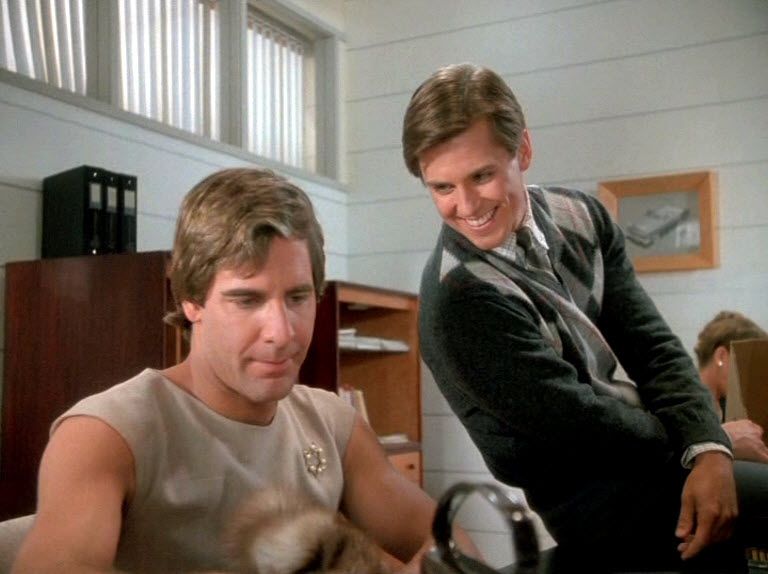
As Sam meets Buddy for the first time, he is harassed and chased around the office as he is on the receiving end of a man abusing his power and exerting dominance in exchange for advancement. “I overlooked some very eligible gals to give it to you,” Buddy sneers at Sam. Sam knows all he needs to about Buddy. His challenge is awakening Gloria to the truth before she takes a drastic course of action.
“I had before me the first-hand definition of SLEAZE. Buddy had perfect hair, perfect teeth, perfect eyes, perfect chin, but they weren’t the arrow that made Gloria fall. It was the velvet tones all neatly wrapped in wit and charm. He was a master of manipulation, and he knew it.”
‘What Price Gloria?’ in the Wake of #MeToo
“What gave ‘What Price Gloria?’ longevity and timelessness is that there are still women who are being oppressed and taken advantage of by men,” explains Deborah. “Any story that you pick is a classic story if you go down to the core thread. The core here is that I’m dealing with what it feels like to be a woman for the first time. It was dealing with what women go through when men convince them – when predator men convince women – that they have to give them sexual favors – not just to advance, but to feel good about themselves. Once they get what they want, suddenly you don’t exist anymore. It’s confusing. And there’s an innocence to that that I think we captured in Gloria’s character. There’s a fine line between what you’re told as an innocent, by a predator who makes you feel good about yourself, and what is love.”
The historical setting provided a fertile backdrop for Sam on his first foray into sisterhood.
“We were just coming out of World War II and that changed women’s place in America. Women had to go to work to keep the economy going while men were at war and suddenly women were earning money. Then men came back and said, ‘Go home, have babies, go be in the kitchen.’ And women went, ‘What? No, we don’t want to think that.’ Suddenly there was this push in the ‘50s and ‘60s to have women in the workplace full-time. However, their counterparts always had executive roles and they were still relegated to secondary roles. I think they handled that very well in Mad Men.”
On a rewatch, even post #MeToo, it is an inescapable truth that we have not made as much progress as we should have, which is not lost on Deborah.
“I wanted to make sure when I did the research to tell the story, it was something that really reflected a timelessness. Meaning, it’s still happening today. Women’s rights is still an issue that we’re fighting for today. And the ‘60s setting was interesting in the sense that even though women got the right to vote in America in the ‘20s, it wasn’t until the black rights movement where black women fought to get the vote that white women really got the right to vote, too. So the ‘60s was a real movement for women. And that’s why I saw it as an opportunity to make it a more universal story.”
Al explains he sees Sam only as Samantha, and she drives him wild:
“I can’t stop thinking about you. Time has packaged my best friend inside a goddess of love. It’s got me worried Sam!”
In typical ladies’ man fashion, Al can’t help himself but is in a tailspin as it’s Sam in there underneath it all. LaReine Chabut, who played Sam’s ‘body’ in the episode, Samantha Stormer, was discovered by Ridley Scott during an open audition. He made her the new face of Pepsi in the ‘80s, a campaign that was originally supposed to be fronted by Paulina Porizkova, before Quantum Leap.
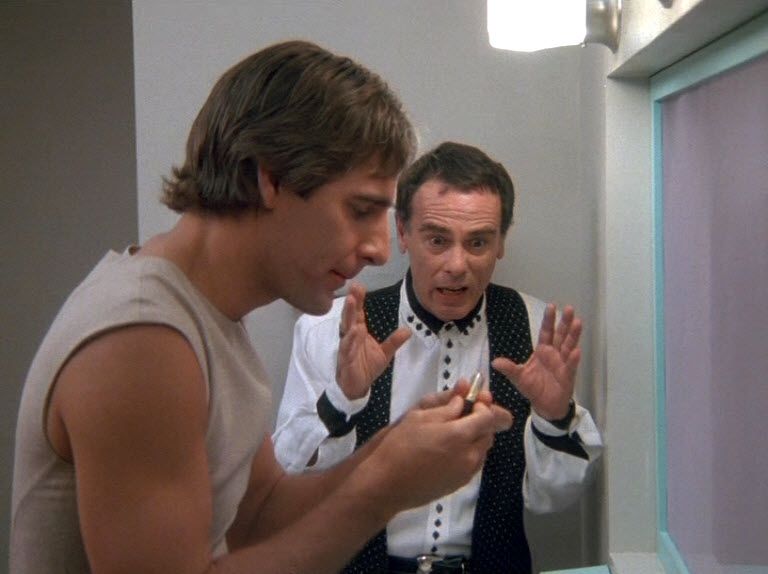
Al finds himself unable to perform sexually with his lover because he can’t stop thinking about Sam, bringing his sexuality into question. “I just tried to give everybody a moment,” explains Deborah. “Al had a moment where he kind of got a crush on Samantha. So Al had his moment, but he was turned on by how pretty Samantha was.”
Throughout the episode, Al is on his own rollercoaster journey, unpicking his confusion and discussing his therapist’s advice, citing that he’ll need years of therapy, even frustratingly spitting ‘hermaphrodite’ at Sam, which now feels unpalatable given how times have changed, but Al isn’t portrayed as a bigot. The affection between the two men is undeniable. Fortunately for Sam and Al, leaps are short-lived and their bond is stronger than most marriages, and it adds extra layers of complexity to support the core themes.
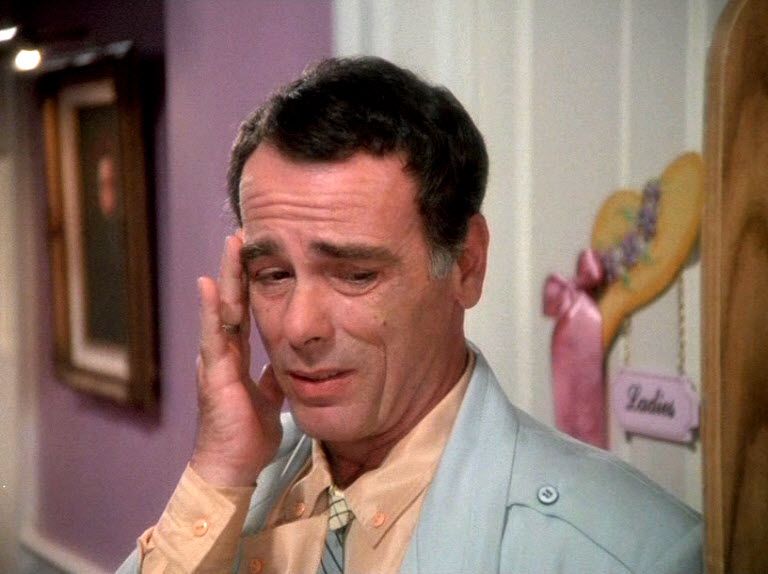
Dr. Sam Beckett: “You shouldn’t need a man to make you feel special.”
Gloria: “But I do… Have you ever had a man love you for anything besides your body?”
As Buddy continues to spin yarns to bed Gloria, Sam persists in trying to make her see sense. That evening, Sam is convinced to double date with Gloria – more men in suits keen to purr and paw at Sam. Dazzling in a low-cut dress, bright red lipstick, and a fascinator, his lecherous date makes a beeline for Sam’s knee under the table, but Sam smashes him in the face with his purse, knocking him off his seat. Taking a break to the powder room, Sam misses the moment that knocks Gloria’s world off its axis.
Saving Gloria in ‘What Price Gloria?’
Gloria sees Buddy and his wife appear in the restaurant. Gloria has been promised by Buddy that he’ll leave his wife after the holidays and that it’s all been discussed and is out in the open. Pure-hearted Gloria wants to comfort Mrs. Wright. Instead, Mrs. Wright calmly reveals to Gloria that she and Buddy have an arrangement and that she should “quietly close your hope chest on this one and try someone else’s husband.” Gloria’s world is broken and she flees the scene.
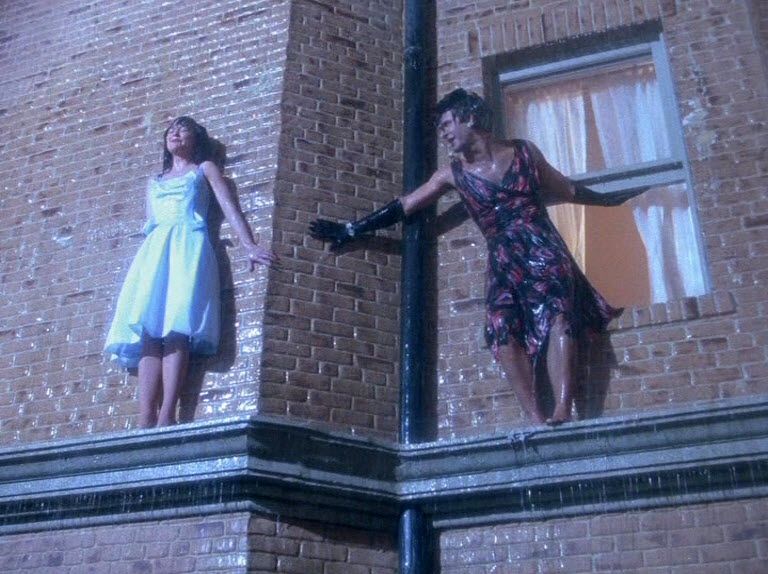
Sam and Al return to the apartment building, with distressed Gloria standing out on the window ledge in the pouring rain. Sam talks her down, asking her to consider how it will look to Buddy – like she’s taken her life because of him. Does she really want to give him that too? As she changes her mind, the ledge breaks, and Sam is forced to climb out on a drainpipe, acting as a bridge for her to cross over to safety.
“I think the other key choice in it was the suicide story – Gloria really emphasized the impotence that women are subjected to, especially with the Harvey Weinsteins of the world and men taking advantage of women and throwing them away. We’re still dealing with the stress that is put on women, especially young women. Women have been taught that their beauty is their value.
“Having Sam standing up to say that you’re so much more than the way you look – it’s about your intelligence. It’s about your kindness. It’s about your heart. The idea of stakes being life and death absolutely raise it to the hilt.”
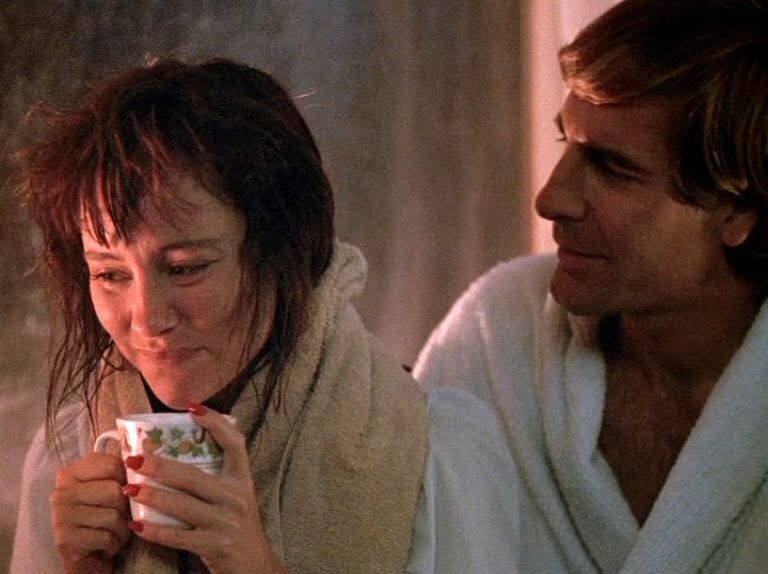
Sam shares encouraging words of wisdom with Gloria. She doesn’t need a man to be valued and have a place in the world. She can work hard and try to join the automobile design program and not just be a typist. It isn’t all about getting a husband – she’s just been fed the Prince Charming myth. Though ironically, in this episode, she is rescued by a man – she just doesn’t know it.
“If you don’t like yourself, Gloria, no one else will either.”
Gloria’s Revenge and Shades of Transphobia
Though Sam has prevented Gloria from committing suicide, he still hasn’t leaped… Ziggy, Al’s super mini-computer, decides the final part of the mission is a very female one. The act of revenge.
As Sam reels in Buddy for a seductive kiss, Sam takes delight in revealing that “you’re trying to make it with a man. Bodies can be deceiving.” A confused and mortified Buddy squeals like a girl. Sam plays a cat-and-mouse game, chasing Buddy around the office this time as roles are reversed.
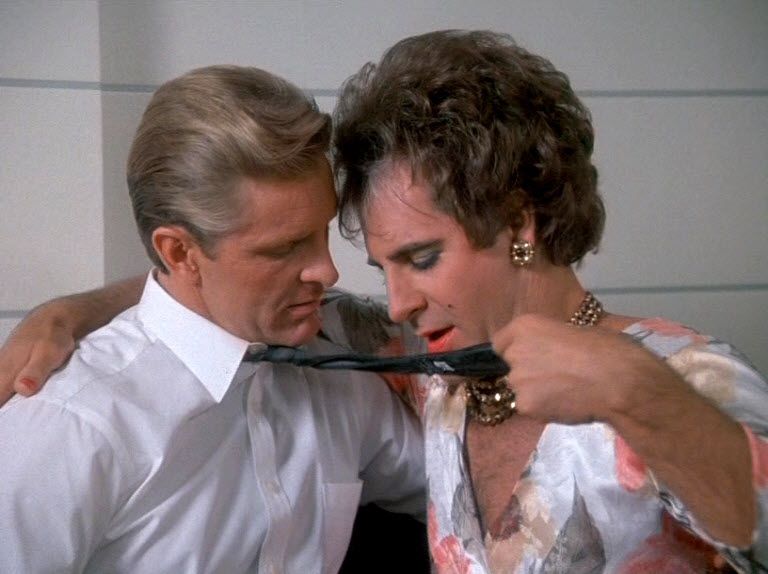
Buddy is sexually confused and questions himself. “You did a Christine Jorgensen?” he asks Sam. Jorgensen was the first widely-known transgender person in the US to have had reassignment surgery in the 1950s, so the reference is an education in modern times – an important reminder of a hugely important figure.
Sam has to prove he is in fact a man, with his only kiss being one with a fist – a final blow to Buddy that knocks him to the floor, his toxic masculinity and fragile ego bruised. Sam takes off his heels and symbolically drops them on Buddy’s back. A new leap awaits him.
“I’m writing that ending and I know I want Sam to reveal he’s a man. So I go in and see my male writers and I said to them, ‘Tell me five things about being a guy when you were young that would distinguish you as a man – that a woman would never know.’ The story of having to carry your books because you have a permanent erection that won’t go down when you’re a teenager, how to throw a hard baseball, looking at Playboy centerfolds. There were things that were very male-centric that they told me. There were a couple that I didn’t use as they’re a little too graphic for TV!”
The episode also includes one of the most impressive mirror/reflection shots in the show’s history. “The mirror scene was probably our most unique because we lucked out, in that Jean Sagal had a twin sister,” Deborah says.
As Sam awkwardly pulls on a dress while he talks to Gloria, their reflection is in floor-to-ceiling mirrored wardrobe doors, a shot showing the span of the room, with Gloria and Samantha speaking in a heartfelt moment.
Jean Sagal, who is now a TV director (Two Broke Girls, Two and a Half Men, Fuller House), starred in the ‘80s sitcom Double Trouble with her sister, Liz. “We used her twin in the mirror, which is how we could do it. Alan J. Levi was very clever in setting it up and shooting it.”
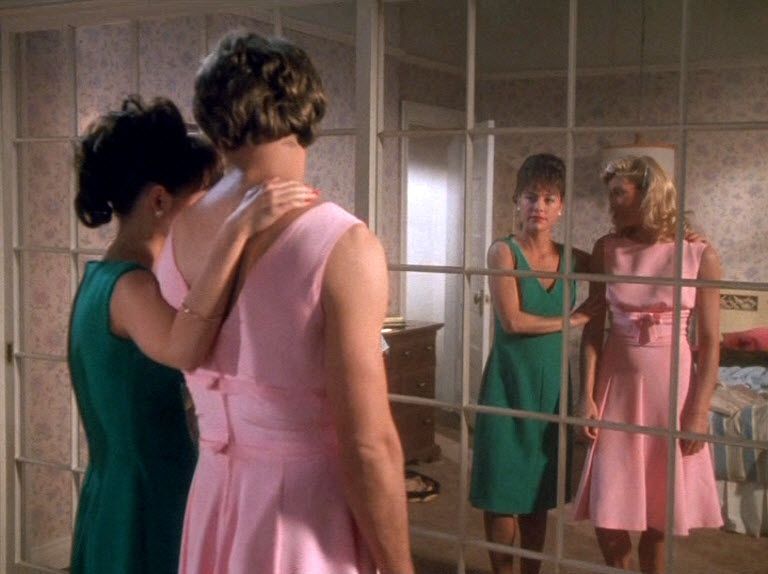
Director Alan J. Levi previously cut his teeth by helming episodes of The Six Million Dollar Man, The Bionic Woman, and Battlestar Galactica and went on to direct The New Adventures of Superman, and genre-buster, Buffy the Vampire Slayer.
Beyond the impressive mirroring, there are other reflections in ‘What Price Gloria?’. The comedy is deftly woven throughout the layers of plot and subplots. Bakula’s performance still stands up as a terrific example of a strong but unthreatening male presence, a reluctant rescuer and hero compelled to do the right thing, but living the discomfort of the “iron maidens” footwear and underwear-like scaffolding. It only serves to make him more loveable.
The show’s female head writer, a trailblazer in her own right, was able to say so much with ‘What Price Gloria?: October 16, 1961’. Deborah used the past to hold up the mirror to issues that were still prevalent at the time of production, but it was also a prophetic forecast of horrors that would dominate social media and the new century. Even in the early ‘90s, and using the ‘60s as its backdrop, ‘What Price Gloria?: October 16, 1961’ could be remade or retold today, with some celebrity name substitutions and Manolo Blahniks for Sam to walk in, and would sadly be as relevant in modern times.
Deborah M. Pratt’s work here set the bar for Sam’s future leaps as a woman – be it a pregnant teen, a pageant queen, or a wholesome home-maker on the liberation front – but Gloria is a woman most of us have met, or heard about in stories in watercooler moments.
Deborah talks passionately about this episode, too. “We still live in this predatory world and the show got to really talk about it. I was really proud of that opportunity. If you look at the shows that I wrote, a lot of them had something to say – they weren’t frivolous. I really pushed that in my writers.”
Though progress has been made, the world remains rife with Glorias and Buddys, and Trumps. Just not enough Sams.
This article was first published on December 30th, 2020, on the original Companion website.
The cost of your membership has allowed us to mentor new writers and allowed us to reflect the diversity of voices within fandom. None of this is possible without you. Thank you. 🙂


